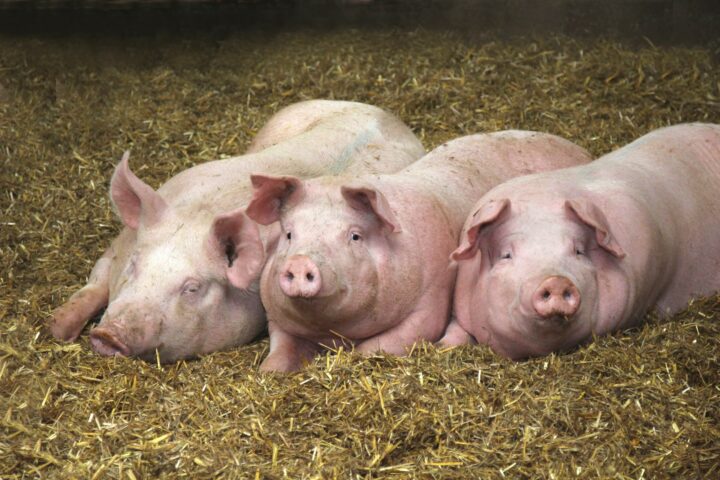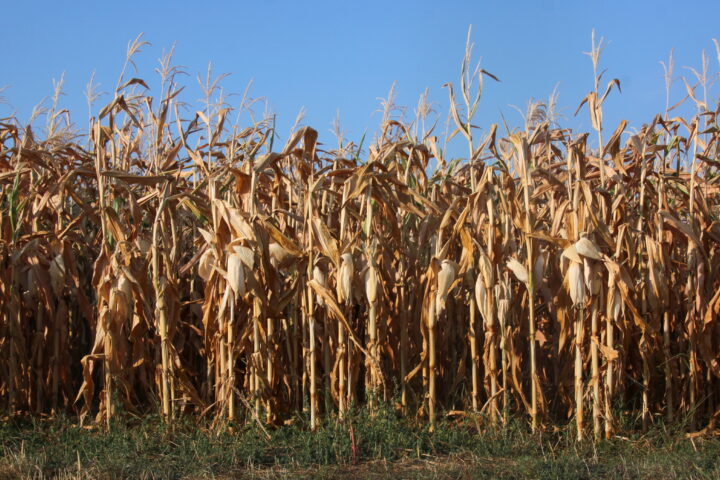
Drought-tolerant wheat from Argentina
Heat waves are posing a major challenge to cultivation around the world. Water shortages and droughts are resulting in heavy crop losses for the agricultural industry. Because droughts will be more frequent in the future, the search for plant varieties that consume less water is a top priority. One drought-tolerant wheat variety from Argentina is showing great potential.
Tuesday, August 2, 2022
Europe is currently suffering from severe heat and drought. Some areas have seen no rain for weeks or even months. The south of the continent has been particularly affected. In Italy, where the river Po has all but dried up due to drought, five regions have declared a state of emergency through the end of the year. And water is also scarce in Portugal, Spain, and southern France. Water scarcity is a particular threat to agricultural. Droughts cause large-scale destruction of crops, jeopardizing food security in many countries. Breeding plant varieties that require less water is therefore an important goal for both European and global agricultural industries.
Gene involved in drought stress response identified
There is some good news from Argentina, however, where the company Bioceres is working on developing a drought-resistant variety of wheat. Several years ago, researchers at the company identified the regulatory gene HB4 in sunflowers, which—in addition to its many other functions—controls and coordinates the plant’s drought stress response. Field trials involving soybean plants that had the HB4 sunflower gene introduced showed that the plants produced around ten percent higher yields during drought than conventional varieties. The transgenic soybean plant has been approved for cultivation in Argentina since 2015.
Twenty percent higher yields during drought
Genetically modified soybeans are grown in approximately three-quarters of the world’s soybean producing areas, and they play a vital role in animal feed production and trade. Wheat is considerably more important when it comes to crops for human consumption. Yet genetically modified varieties of wheat for human consumption have so far largely failed to catch on. This could change with the drought-resistant wheat variety from Bioceres. In field trials, the company’s HB4 wheat produced 20 percent higher yields during drought than conventional varieties. It has been approved for cultivation in Argentina since 2021.
Acceptance in importing countries crucial
Importing countries will need to be receptive to the wheat before large-scale cultivation can begin. Since 2021, a number of important agricultural countries such as Brazil, Colombia, New Zealand, Australia and, not least, the USA have authorized the import of HB4 wheat for animal and human consumption, and 53,000 hectares of HB4 wheat were already being cultivated in Argentina by 2021–22. As this example shows, openness to new varieties and technologies is crucial for securing the future of agriculture in the face of climate change.
Related articles

What’s Really in Your Shopping Basket
Genetic engineering in our shopping basket? Yes – and much more often than we think. Whether it’s pasta, bread or vegetables: many of the everyday products we consume come from mutation breeding, which involves altering the genome and is considered safe. It’s high time to debunk the common myths.

Genomic breeding methods are not given a chance to prove themselves
Modern genomic breeding methods are legally classified as genetic engineering – and are therefore still effectively blocked. Yet we have been eating genetically modified plants for decades, just under the label of “classical mutagenesis.” The new, more precise techniques are regulated more strictly than the old ones, even though they are considered safer from a scientific perspective. A contradiction that urgently needs to be corrected. The EU is setting a good example.

No Pig Business: Why Testicle-Free Boars Are a Clear Win for Animal Welfare
New breeding methods are opening up new possibilities in both plant and animal breeding. They allow targeted genetic changes that can make animals more resilient, adaptable, and healthier.

Stagnation instead of progress: Switzerland risks falling behind in new breeding techniques
An overview article in Schweizer Bauer shows how much the new breeding methods are preoccupying farming circles. Once the consultation process on the federal law has been completed, a bill is expected – then it will become clear whether there is actually the political will to approve it.

